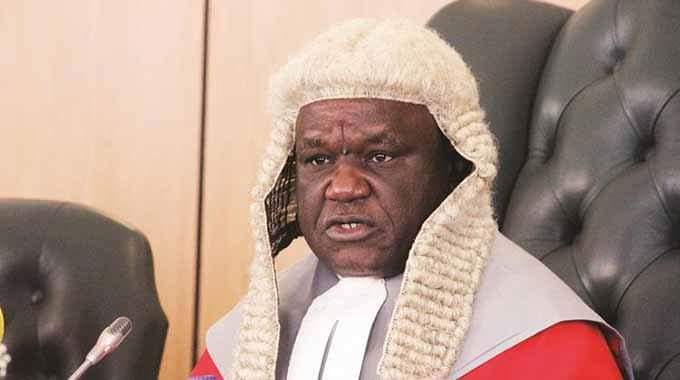The Africa Judges and Jurists Forum (AJJF) has called upon Chief Justice Luke Malaba to revoke his recent directive that judges should first seek approval or have their judgements seen by their superiors before being handed down, condemning the move as not only unconstitutional but also a threat to individual and decisional independence.
This comes at a time when the independence of Zimbabwean courts in handling political cases such as the 2018 MDC election petition, has been under the spotlight.
AJJF is a Pan-African network of judges and jurists, who are committed to promoting justice and development in Africa.
On July 16, Malaba issued a practice directive in the form of a memorandum addressed to the Supreme Court, High Court, Labour Court and Administrative Court directing that: “Before any judgement or an order of the High Court or Labour Court is issued or handed down, it should be seen and approved by the head of court division.”
In a statement dated July 21, 2020, AJJF did not have any kind words for Malaba.
“It (the directive) needs to be totally revoked as it has no place in modern day constitutional democracy, governed according to separation of powers,” said Martin Okumu-Masiga, AJJF secretary-general.
“It amounts to one of those unusual situations where the threat to judicial independence is potentially intra the judiciary and not external, which is highly regrettable.”
Justice Oagile Dingake of the Supreme Court of Papua New Guinea, formerly High Court of Botswana, also criticised Malaba for his infamous directive.
“The directive is a direct and intolerable attack on the principle of independence of the judiciary derived from the principle of separation of powers between the executive, the legislature and the judiciary,” he said.
“The principle of separation of powers is the cornerstone of an independent and impartial justice system. It is the bedrock upon which the prerequisites of judicial independence and impartiality are founded.”
He added: “The provision of the above directive for judgements to be seen or approved by judicial officers who did not sit on the case merely because they are deemed to be supervisors grossly undermines the individual decisional independence of the judges and must be frowned upon.”
AJJF further urged the government of Zimbabwe to guarantee the protection of the independence of the judiciary as is guaranteed by both domestic and international obligations, such as the Constitution, African Charter on Human and People’s Rights, United Nations Basic Principles on the Independence of the Judiciary and the Universal Charter of the Judge.


Leave a comment